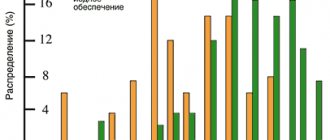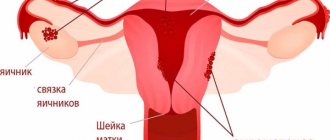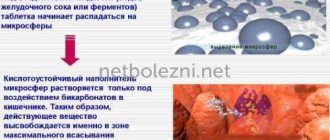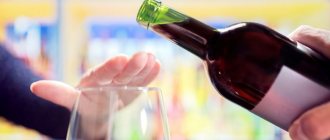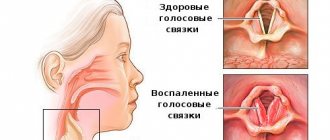Iodine is an essential component of thyroid hormones. No iodine means no these hormones. And the absence or sharp decrease in the level of thyroid hormones can lead to catastrophic consequences, because these substances take part in almost all vital processes in the body:
- ensure normal energy metabolism
- stimulate protein synthesis, take part in fat metabolism
- help develop the immune system
- determine the quality of reproductive health
The importance of thyroid hormones and, accordingly, iodine necessary for their synthesis cannot be overestimated. And this is especially true for residents of Russia, where almost the entire population suffers from iodine deficiency in the diet.
Composition per tablet:
Active substance:
potassium iodide - 0.262 mg (corresponding to 0.2 mg of iodine).
Excipients:
lactose monohydrate, magnesium hydroxycarbonate, gelatin, sodium carboxymethyl starch, colloidal silicon dioxide, magnesium stearate.
Description: round flat-cylindrical tablets of white or almost white color with a chamfer and a score on one side.
Pharmacotherapeutic group: thyroxine synthesis regulator - iodine drug
ATX code: H03CA
Composition and release form
Iodomarin®100
| Pills | 1 table |
| potassium iodide | 131 mcg |
| (which corresponds to 100 mcg of iodine) | |
| excipients: lactose monohydrate; magnesium carbonate basic light; gelatin; carboxymethyl starch sodium salt; highly dispersed silicon dioxide; magnesium stearate |
in glass bottles of 50 or 100 pcs.; 1 bottle in a cardboard box.
Iodomarin®200
| Pills | 1 table |
| potassium iodide | 262 mcg |
| (which corresponds to 200 mcg of iodine) | |
| excipients: lactose monohydrate; magnesium carbonate basic light; gelatin; carboxymethyl starch sodium salt; highly dispersed silicon dioxide; magnesium stearate |
in a blister pack 25 pcs.; in a cardboard box 2 or 4 packages.
Pharmacological properties
Pharmacodynamics
Iodine is a vital trace element that is a component of the thyroid hormones - thyroxine and triiodothyronine. Thyroid hormones are involved in the development of all organs and systems, in the regulation of metabolic processes in the body: they are responsible for the metabolism of proteins, fats, carbohydrates and energy in the body, regulate the activity of the brain, nervous and cardiovascular systems, reproductive and mammary glands, as well as growth and child development.
Iodine deficiency is especially dangerous for children, adolescents, pregnant and lactating women.
Pharmacokinetics
Suction
When taken orally, potassium iodide is almost completely absorbed in the small intestine.
Distribution
The average volume of distribution for healthy individuals is approximately 23 liters (38% of body weight). The normal plasma iodine concentration ranges from 0.1 to 0.5 μg/dL. Accumulates in the thyroid gland, salivary glands, mammary glands and stomach tissues. The concentration in saliva, gastric juice and breast milk is approximately 30 times higher than in blood plasma.
Removal
Excreted by the kidneys, the concentration of iodine in urine relative to creatinine (mcg/g) is an indicator of its intake into the body.
Vulnerable period
Everyone needs iodine during pregnancy! Without sufficient iodine levels, conceiving is very difficult. And then, during pregnancy, not only her health, but also the health, memory, intelligence, hearing and motor abilities of the child depends on a sufficient amount of iodine in the mother’s diet!
The fact is that thyroid hormones are needed for the proper formation of the brain. They serve as a kind of “timer” that determines the sequence of the formation and development of brain cells. In the first trimester, when the brain is formed as an organ, the child’s thyroid gland is not yet “working” and the baby is completely dependent on the mother’s hormones. Therefore, during pregnancy, the mother’s thyroid gland works “in increased mode,” producing 30-40% more hormones. To ensure this intensive synthesis, additional amounts of iodine are needed.
Unbelievable but true
During pregnancy, with a lack of iodine, a woman's thyroid gland, trying to compensate for the lack of hormones, increases in size. The ancient Egyptians used this as a kind of “pregnancy test”. Young women had a thread tied tightly around their necks. If after some time the thread broke (due to an enlarged thyroid gland), this was a sure sign of pregnancy.
If there is a noticeable lack of iodine, and the mother has severe iodine deficiency, then the child’s brain is formed “with errors.” As a result, a newborn child may suffer from severe mental retardation, deafness, and impaired psychomotor development. Since hormones are involved in the process of bone tissue maturation, the child, in addition to brain pathology, may experience short stature.
If the mother’s iodine deficiency is moderate, then problems with the formation of the brain will not be so fatal, but, nevertheless, there will be: a slight decrease in mental abilities, late psychomotor development - all this is typical for children whose mothers suffered from iodine deficiency during pregnancy.
The saddest thing is that the problems that arise in the baby during the prenatal period due to a lack of iodine in the mother’s diet are then not corrected in any way!
No matter how much iodine you give your child, the brain will not re-form, and intellectual abilities will be lost forever.
Contraindications
- hypersensitivity to the active substance or auxiliary components of the drug;
- manifest hyperthyroidism;
- subclinical hyperthyroidism - in doses exceeding 150 mcg of iodine per day;
- solitary toxic adenomas of the thyroid gland and functional autonomy of the thyroid gland (focal and diffuse), nodular toxic goiter (with the exception of preoperative therapy for the purpose of blocking the thyroid gland);
- Dühring's herpetiform (senile) dermatitis;
- lactose intolerance, lactase deficiency or glucose-galactose malabsorption.
The drug should not be used for hypothyroidism, except in cases where the development of the latter is caused by severe iodine deficiency.
The use of the drug should be avoided during therapy with radioactive iodine, the presence or suspicion of thyroid cancer.
Use during pregnancy and breastfeeding
During pregnancy and breastfeeding, the need for iodine increases, so it is especially important to use it in sufficient doses to ensure adequate iodine intake in the mother's body.
Potassium iodide crosses the placenta and enters breast milk, so use of the drug during pregnancy and breastfeeding is possible only in recommended doses.
If a nursing woman takes potassium iodide, additional potassium iodide is not required for breastfed infants.
When carrying out potassium iodide therapy, it is necessary to take into account the amount of iodine supplied with food.
To be or not to be, to drink or not to drink... Do pregnant women need vitamin supplements?
Doctors recommend that almost every woman take various vitamin preparations during pregnancy. But do pregnant women need to take vitamins? Isn't a balanced diet enough? We asked these and other questions to Ekaterina Aleksandrovna Minchenkova, an obstetrician-gynecologist at the Expert Clinic Smolensk.
— Ekaterina Aleksandrovna, what is the role of vitamins in the body in general and in the body of a pregnant woman in particular?
— Vitamins are special substances that everyone (not just women) need in small quantities for the normal functioning of the body. They participate in metabolism, are biological accelerators of chemical reactions occurring in the cells of the body, etc. A pregnant woman has a higher need for vitamins and microelements, because the fetus also needs them.
— What vitamins can you get from food?
— Most vitamins are not formed in our body, but come from food. If a pregnant woman eats a full, rational, varied diet, then she does not need additional vitamins and minerals (with some exceptions). They will be easily obtained from food in sufficient quantities. No vitamin supplement can match the positive effects of proper nutrition.
— Speaking about nutrition, you said “with some exceptions.” That is, despite the correct diet, pregnant women should still take some vitamins? And if so, which ones?
- Yes. During pregnancy, doctors prescribe certain vitamins and microelements, even if the woman eats normally. I will dwell in detail on those that I consider the most important. The #1 prenatal vitamin is vitamin B9, or folic acid. Probably, it would be possible to do without additional intake of other vitamins, but it’s impossible without folic acid. This is explained by the fact that the most convincing evidence about the need for additional vitamin intake in preparation for pregnancy and in the first 12 weeks of pregnancy was obtained only for folic acid. A lack of this vitamin may increase the likelihood of neural tube defects in the fetus, as well as some other defects (cleft lip, palate, congenital heart defects, malformations of the urinary tract and limbs, congenital hydrocephalus).
The recommended dose of folic acid is 400–500 mcg (micrograms) per day, but in rare cases it may be higher. To cover the daily dose of this vitamin, you need to eat 500 g of liver (chicken, goose, pork, beef, cod, etc.) or 1 kg of salad. It is difficult to provide the required daily amount of folic acid from food, so the doctor prescribes it in the form of a drug.
Next is vitamin D. It is formed in the body under the influence of ultraviolet rays (the main way it is obtained), and comes in some quantity from certain foods. All pregnant women may be recommended to take an additional dose of 600–1200 IU/day. But it is better to visit a doctor to decide whether it is necessary or not.
Supplemental vitamin B12 may be indicated for vegans and vegetarians.
I would also like to talk about microelements - they are also important for a pregnant woman’s body. All women in the CIS countries are recommended to take additional iodine in the form of potassium iodide. Before pregnancy, the iodine dose is 100–150 mcg per day. With the onset of pregnancy, throughout its entire duration and during breastfeeding, the dose increases to 250 mcg per day. But usually, covering the need for iodine is distributed as follows: we get 50 mcg from food, and 200 mcg we take in the form of a drug. For diseases of the thyroid gland, consultation with an endocrinologist is mandatory.
Calcium at a dose of 1000 mg per day should be obtained daily from food or mineral supplements if the woman does not consume calcium-containing foods.
Omega-3 polyunsaturated fatty acids (PUFAs). WHO still does not recommend additional intake of this component during pregnancy and insists on a healthy diet. A sufficient supply of omega-3 is necessary for the proper formation of the vision organs and brain of the unborn child. In 2022, a study was conducted that included several thousand pregnant women. A diet high in omega-3s has been shown to reduce the risk of preterm birth from 7% to 2%, as well as the risk of low birth weight babies.
Excellent sources of omega-3 PUFAs include salmon, tuna and seafood. If you use them 2 times a week, then you do not need additives and dietary supplements with this component. Everyone else should think about changing their diet or taking them additionally (of course, after consulting a doctor).
— You talked about the possible consequences of a lack of folic acid. What can a deficiency of microelements lead to in a pregnant woman and unborn child?
— Children born to mothers with mild to moderate iodine deficiency are more likely to have behavioral disorders in the form of attention deficit hyperactivity disorder. Severe iodine deficiency in pregnant women is fraught with an increase in the incidence of stillbirths and infant mortality, miscarriages, the birth of low birth weight children, and children with mental retardation.
A lack of calcium also leads to negative consequences: bone density decreases, which leads to the development of osteoporosis in women during menopause and an increased risk of fractures in old age. Possible heart rhythm disturbances, muscle spasms, and convulsions. In pregnant women, especially those at risk, the likelihood of developing gestational hypertension (high blood pressure) and preeclampsia (a pathology in which blood pressure rises during pregnancy, edema forms, and protein appears in the urine) increases.
Calcium is best absorbed from dairy products, 2-3 servings of which will provide the daily intake. 1 serving is equal to 200 ml of milk, kefir, yogurt, fermented baked milk, or 200 g of yogurt, or 100 g of cottage cheese or 40 g of cheese.
Iron deficiency in the mother’s body before pregnancy and in its early stages can “cross out” all subsequent efforts of parents and teachers in educating their children. The developing brain of an unborn baby is especially sensitive to a lack of iron in the body, including when there is a hidden deficiency, when hemoglobin is normal and iron reserves are low.
Many people know that iron is needed for the formation of hemoglobin, which can bind oxygen. Hemoglobin is found in red blood cells, which deliver oxygen to the cells. And if there is little oxygen, then the cells suffer. Imagine feeling short of breath. So it is here: the brain cells of a still small person (3–12 weeks of pregnancy), not receiving enough oxygen, divide more slowly, which simplifies neural connections, the gray matter suffers, and your baby will no longer become a genius, even if you responsibly began taking Iron supplements after 12 weeks of pregnancy.
— Is it possible to take prenatal vitamins without a doctor’s prescription?
- No. I recommend taking vitamins only after consulting a doctor if a deficiency has been established. People who may be at increased risk of developing vitamin deficiencies include:
- obese people;
- vegans;
- having some intestinal diseases;
- people with low socioeconomic status;
- experiencing real hunger
and some others. For these women, additional vitamin intake will be justified.
— Can vitamin supplements taken during pregnancy be harmful or useless?
— At the moment, there is no evidence that multivitamins prevent the development of any diseases, that they are necessary and useful. That is, they turned out to be ineffective. Vitamins usually contain more than 5 components. And even a very qualified clinical pharmacologist will not calculate all the options for the interaction of active components in a living organism. According to many studies, most multivitamin complexes are not absorbed by the body. They contain components (vitamins and microelements) that are incompatible with each other: calcium and iron, fat- and water-soluble groups of vitamins, zinc and folate. B1, B6 and B12, although from the same group, are “at odds” with each other or enhance each other’s negative effects. Therefore, if you take vitamins, it is better to take them separately, and only those that are really necessary.
Often the dosages of the components do not correspond to the recommended ones (for example, folic acid is recommended at a dose of 400 mcg per day, and in multivitamins it is often contained in an amount of 200 mcg, etc.).
Any supplements or vitamin complexes containing vitamin A should be avoided due to its possible teratogenic effect (that is, the ability to cause malformations in the child during pregnancy).
There are no natural vitamins on the modern pharmaceutical market. Without exception, all preparations contain vitamins or their analogues, which are obtained synthetically. Natural ones are found only in food products.
— Do prenatal vitamins have side effects?
- Certainly. Firstly, like any other drugs, there can be an allergic reaction to them. Side effects from the gastrointestinal tract are also common: nausea, vomiting, constipation, diarrhea, etc. The load on the liver is high. Excessive intake of some vitamins can lead to cancer.
— Is it possible for a pregnant woman to take vitamins if she has uterine fibroids? And if so, which ones?
— There are no restrictions or features in terms of taking vitamins.
— Are there any contraindications to taking vitamins for pregnant women?
— Contraindications are the same as for all other drugs. Increased individual sensitivity to the components of the drug or their intolerance, hypervitaminosis, severe renal failure and some others. Therefore, only a specialist can prescribe them.
I would like to finish with the words of one professor: even after eating a fruit with nitrates, a person will receive more useful vitamins and microelements than by taking one synthetic tablet. Not verbatim, but conveyed the meaning.
Interviewed by Marina Volovik
You can make an appointment with an obstetrician-gynecologist here. ATTENTION: the service is not available in all cities
The editors recommend:
Rules for healthy eating. What should you eat to stay healthy? Life without meat: fashion, philosophy or benefit to the body? How to determine that the body does not have enough iodine? Myths and truth about thyroid diseases
For reference:
Minchenkova Ekaterina Aleksandrovna
In 2014 she graduated from the Faculty of Medicine of Vitebsk State Medical University. In 2015 – internship in obstetrics and gynecology. Currently, he is an obstetrician-gynecologist at the Expert Clinic, Smolensk. Reception is conducted at the address: st. March 8, 20.
Directions for use and doses
When determining the required dose of Iodomarin ® 200, it is necessary to take into account regional and individual characteristics of iodine intake from food. This is especially important when prescribing the drug to newborns and children under 4 years of age. Prevention of iodine deficiency diseases:
Newborns and children: 100 mcg of iodine per day (1/2 tablets of Yodomarin ® 200); Teens and adults:
100−200 mcg of iodine per day (1/2 - 1 tablet of the drug Yodomarin ® 200);
During pregnancy and breastfeeding:
100−200 mcg of iodine per day (1/2 - 1 tablet of the drug Yodomarin ® 200).
Prevention of goiter recurrence after its surgical removal or after completion of goiter treatment with thyroid hormone drugs:
100−200 mcg of iodine per day (1/2 - 1 tablet of the drug Yodomarin ® 200).
Treatment of euthyroid goiter:
Newborns and children: 100−200 mcg of iodine per day (1/2 - 1 tablet of Yodomarin ® 200);
Adolescent and young adult patients:
200 mcg of iodine per day (1 tablet of the drug Yodomarin ® 200).
The daily dose of the drug should be taken in one dose, after meals, with a sufficient amount of liquid. When prescribing the drug to newborns and children under 3 years of age, it is recommended to dissolve the tablet in a small amount (1 tablespoon) of boiled water at room temperature.
The use of the drug for prophylactic purposes is carried out for, as a rule, several months or years, and often throughout life.
For the treatment of goiter in newborns, in most cases, 2-4 weeks are sufficient; in children, adolescents and adults it usually takes 6−12 months or more. The duration of treatment is determined by the doctor.
Mom and baby
However, disruption of the formation and formation of the brain is far from the only, albeit the most dramatic, consequence of iodine deficiency during pregnancy.
Let's start with the fact that a sharp decrease in the level of thyroid hormones during pregnancy can provoke a miscarriage or the birth of a stillborn child. The body is simply not able to bear a baby in conditions of impaired protein and fat metabolism.
In addition, the child’s thyroid gland may suffer from iodine deficiency. It is formed and begins to function from the 3-4th month of intrauterine life and in order for it to synthesize hormones, iodine is needed. If there is little iodine in the mother's diet, then the newborn baby will experience hypothyroidism - insufficient production of thyroid hormones, accompanied by constipation, retardation in psychomotor development, decreased intelligence, etc.
Overdose
Symptoms:
staining of the mucous membranes brown, reflex vomiting (if there are starch-containing components in the food, the vomit becomes blue), abdominal pain and diarrhea (blood may be present in the stool). In severe cases, dehydration and shock may develop. In rare cases, esophageal stenosis has occurred. Cases of death were observed only after taking large amounts of iodine (30 - 250 ml of iodine tincture).
In rare cases, long-term overdose of potassium iodide can lead to the development of so-called “iodism”, i.e. iodine intoxication: metallic taste in the mouth, swelling and irritation of the mucous membranes (runny nose, conjunctivitis, gastroenteritis, bronchitis). Potassium iodide can activate latent inflammatory processes such as tuberculosis. Possible development of edema, erythema, acne-like and bullous rash, hemorrhage, fever and irritability.
Treatment for acute intoxication:
gastric lavage with a solution of starch, protein or 5% sodium thiosulfate solution until all traces of iodine are removed.
Symptomatic treatment of water balance disorders, electrolyte balance, anti-shock therapy. Treatment for chronic intoxication:
drug withdrawal.
Treatment of iodine-induced hypothyroidism:
discontinuation of the drug, normalization of metabolism with the help of thyroid hormones.
Treatment of iodine-induced thyrotoxicosis:
for mild forms, treatment is not required; in severe forms, thyreostatic therapy is required (the effect of which is always delayed). In severe cases (thyrotoxic crisis), intensive therapy, plasmapheresis or thyroidectomy are necessary.
In the case of hyperthyroidism, we cannot talk about an overdose as such, since hyperthyroidism can be caused by an amount of iodine that is normal in other countries.
Side effects
When used prophylactically at any age, as well as when used therapeutically in newborns, children and adolescents, as a rule, no side effects are observed. In rare cases, constant use of the drug can lead to the development of “iodism”, which can be manifested by a metallic taste in the mouth, swelling and inflammation of the mucous membranes (runny nose, conjunctivitis, bronchitis), “iodine fever”, “iodine acne”. Extremely rare - Quincke's edema, exfoliative dermatitis. When using the drug at a dose of more than 150 mcg/day, latent hyperthyroidism can become manifest. When using doses from 300 to 1000 mcg/day, the development of hyperthyroidism is possible (especially in elderly patients suffering from goiter for a long period, in the presence of nodular or diffuse toxic goiter).
Interaction with other drugs
Iodine deficiency increases, and iodine excess decreases, the effectiveness of hyperthyroidism treatment with antithyroid drugs. Therefore, before or during treatment for hyperthyroidism, it is recommended to avoid any iodine intake if possible. On the other hand, antithyroid drugs inhibit the conversion of iodine into an organic compound in the thyroid gland and, thus, can cause the formation of goiter.
Substances that enter the thyroid gland through the same mechanism as iodides can compete with iodine and inhibit its uptake by the thyroid gland (for example, perchlorate, which also inhibits the recycling of iodides within the thyroid gland). Iodine absorption may also be reduced when using drugs that do not themselves enter the thyroid gland, for example, thiocyanate in concentrations exceeding 5 mg/dl.
Iodine uptake by the thyroid gland and its metabolism are stimulated by endogenous and exogenously administered thyroid-stimulating hormone (TSH).
Simultaneous treatment with high doses of iodine and lithium salts can contribute to the occurrence of goiter and hypothyroidism. High doses of potassium iodide in combination with potassium-sparing diuretics can lead to hyperkalemia.
Iodomarin 200 mcg No. 100 tab.
Instructions for medical use of the drug Iodomarin® 200 Trade name Iodomarin® 200 International nonproprietary name Potassium iodide Dosage form Tablets 200 mcg Composition One tablet contains the active substance - potassium iodide 0.262 mg (equivalent to iodine 0.200 mg), excipients: lactose monohydrate, magnesium carbonate basic light, gelatin, sodium carboxymethyl starch, type A, anhydrous silicon dioxide, magnesium stearate. Description Tablets are white to almost white in color, with a flat surface, with a bevel and a score on one side. Pharmacotherapeutic group Drugs for the treatment of thyroid diseases. Iodine preparations. ATC code H03CA Pharmacological properties Pharmacokinetics Typically, iodine enters the body through the gastrointestinal tract, but can also enter through the skin and from body cavities. This must be especially taken into account in case of erroneous medicinal administration of iodine. When taken orally, it is quickly absorbed from the gastrointestinal tract. Widely distributed in all tissues and fluids of the body. Inorganic iodine is absorbed in the small intestine almost 100%, and through the skin - insignificantly and uncontrollably. The volume of distribution in healthy people averages about 23 liters (38% of body weight). Serum inorganic iodine levels are usually between 0.1 and 0.5 μg/dL. In the body, iodide accumulates in the thyroid gland and other tissues such as the salivary glands, mammary glands and stomach. In saliva, gastric juice and milk, the concentration of iodide is 30 times higher than its concentration in blood plasma. Urinary iodine excretion, most often indicated in mcg/g creatinine, serves as a criterion for iodine supply, since in a balanced state it correlates with the daily iodine intake from food. Pharmacodynamics The effects that exogenously administered iodine has on the human body depend on the amount of iodine taken per day, on the type of iodine-containing drug, as well as on the condition of the thyroid gland (healthy organ, latent or manifest disease). As an element involved in the synthesis of thyroid hormones - thyroxine and triiodothyronine - iodine is an essential component of food. The need for it, that is, the amount of iodine that must be supplied to the body daily in order to prevent the development of endemic goiter, is about 100 - 150 mcg per day. The WHO recommended amount of iodine that should be consumed daily is 150 - 300 mcg. After iodine is absorbed by electrochemical means (iodination), oxidation occurs in the epithelial cells of the thyroid follicles with hydrogen peroxide (H2O2), which is a cosubstrate, catalyzed by the enzyme iodide peroxidase, from which elemental iodine is released. In this case, part of the tyrosine groups of the glucoprotein (thyroglobulin) is iodinated in positions 3 and, partially, 5 of the aromatic ring (iodization). As a result of oxidative condensation, the iodinated groups of tyrosine are combined to form the thyronine framework. The main products are thyroxine (T4) and triiodothyronine (T3). The “thyronine-thyroglobulin” complex formed in this way is released as a depot form of the thyroid hormone into the colloid of its follicle. Physiological amounts of iodine (up to 300 mcg) prevent the formation of goiter, which develops as a result of iodine deficiency, help normalize the size of the thyroid gland in newborns, children and adolescents, and also affect a number of disturbed biochemical parameters (T3/T4 ratio, TSH level). Indications for use - prevention of iodine deficiency (for example, for the prevention of endemic goiter and after resection of goiter caused by iodine deficiency) - treatment of diffuse euthyroid goiter caused by iodine deficiency in children, including infants, adolescents and young adults. Method of administration and doses Prevention of iodine deficiency diseases (in cases of insufficient intake of alimentary iodine into the body, amounting to at least 150-300 mcg per day): Infants, children 2 - 12 years old - ½ tablet per day Yodomarin® 200 (which corresponds to up to 100 mcg of iodine) Children from 12 years and adults - from ½ to 1 tablet of Iodomarin® 200 (which corresponds to 100 - 200 mcg of iodine) per day Pregnant and lactating: 1 tablet of Iodomarin® 200 (which corresponds to 200 mcg of iodine) per day Prevention of relapses after surgery for euthyroidism goiter or its drug treatment: ½ to 1 tablet of Iodomarin® 200 once a day (which corresponds to 100-200 mcg of iodine). Treatment of euthyroid goiter: Newborns, children and adolescents - from ½ to 1 tablet of Iodomarin® 200 mcg (which corresponds to 100-200 mcg of iodine) per day Adults at a young age - from 1 ½ to 2 ½ tablets of Iodomarin® 200 (which corresponds to 300- 500 mcg of iodine) per day Prophylactic administration of Yodomarin® 200 should usually be carried out for several years, often throughout life. For the treatment of goiter in newborns, in most cases, 2-4 weeks are sufficient; in children, adolescents and adults it usually takes 6-12 months or more. The duration of use of the drug is determined by the attending physician under the control of the level of iodine in the blood. The drug is taken after meals with a sufficient amount of liquid. For children, including newborns, it is recommended to first grind the drug and dissolve it in a small amount of milk or water. Side effects Very rarely - in the presence of larger autonomous areas in the thyroid gland and with daily doses of more than 150 mcg of iodine, hyperthyroidism can develop into a manifest form - when using the drug in a dose exceeding 300-1000 mcg of iodine per day, the development of hyperthyroidism is possible ( especially in elderly patients suffering from goiter for a long time, in the presence of nodular or diffuse toxic goiter) Contraindications - hypersensitivity to the active substance or one of the other components of the drug - manifest hyperthyroidism - latent hyperthyroidism in doses exceeding 150 mcg of iodine per day - toxic adenoma thyroid gland, nodular goiter (when used in doses from 300 to 1000 mcg/day), with the exception of preoperative iodine therapy for the purpose of blocking the thyroid gland according to Plummer) Drug interactions Iodine deficiency increases, and iodine excess decreases the response to hyperthyroidism therapy with thyroid drugs; In this regard, before or during treatment for hyperthyroidism, it is recommended to avoid, if possible, any iodine intake. Thyrostatic drugs, for their part, inhibit the transition of iodine to an organic compound in the thyroid gland and, thus, can cause the formation of goiter. The absorption of iodine by the thyroid gland is competitively suppressed by substances, the introduction of which into the thyroid gland occurs through the same “capture” mechanism as the introduction of iodide (for example, perchlorate, which, in addition, inhibits the recirculation of iodine in the thyroid gland), as well as substances that themselves are not transported by themselves, such as thiocyanate in concentrations exceeding 5 mg/dL. The absorption of iodine by the thyroid gland and its metabolism in it are stimulated by endogenous and exogenous thyroid-stimulating hormone (TSH). Simultaneous treatment with high doses of iodine, which suppress the secretion of thyroid hormones, and lithium salts can contribute to the occurrence of goiter and hypothyroidism. Higher doses of potassium iodide in combination with potassium-sparing diuretics may lead to hyperkalemia. Special instructions The drug Yodomarin® 200 contains lactose. Patients suffering from congenital galactose intolerance, lactase deficiency in the body, or glucose-galactose malabsorption syndrome should not take Yodomarin ® 200. Pregnancy and lactation During pregnancy and lactation, the need for iodine increases, so it is especially important to have a sufficient (200 mcg per day) intake of iodine in the body. Due to the diaplacental transition of iodine and the sensitivity of the fetus to pharmacologically active doses, iodine is not recommended to be prescribed in the milligram dose range. This also applies to the lactation period, since the concentration of iodide in milk is 30 times higher than in blood serum. An exception is high-dose iodine prophylaxis carried out after accidents in the field of nuclear technology. Features of the drug's influence on the ability to drive a vehicle or potentially dangerous machinery There are no indications that Yodomarin® 200 limits the ability to participate in street traffic, operate machines, or work without safety nets. Overdose Symptoms: Brown staining of the mucous membranes, reflex vomiting (if starch-containing components are present in food, the vomit becomes blue), abdominal pain and diarrhea (possibly bloody). Dehydration and shock may develop. In rare cases, esophageal stenosis has occurred. Fatal outcomes were observed only after taking large amounts of iodine (from 30 to 250 ml of iodine tincture). Long-term overdose in rare cases leads to the appearance of a phenomenon called iodism: a metallic taste in the mouth, swelling and inflammation of the mucous membranes (runny nose, conjunctivitis, gastroenteritis, bronchitis). Latent inflammations, such as tuberculosis, can be activated under the influence of iodide. The development of edema, erythema, acne-like and bullous rashes, hemorrhages, fever and nervous excitability occurs. Treatment: a) Therapy for acute intoxication: Gastric lavage with a solution of starch, protein or 5% sodium thiosulfate solution until all traces of iodine are removed. Symptomatic treatment of water and electrolyte imbalances, anti-shock therapy. b) Therapy for chronic intoxication Iodine withdrawal. c) Hypothyroidism induced by iodine Abolition of iodine, normalization of metabolism with the help of thyroid hormones. d) Iodine-induced hyperthyroidism This is not an overdose in the literal sense, because hyperthyroidism can also be caused by amounts of iodine that are physiological in other countries. Treatment in accordance with the form of the course: mild forms, under certain conditions, do not require treatment; in severe forms, thyreostatic therapy is required (the effectiveness of which, however, always appears with a delay). In the most severe cases (thyrotoxic crisis), intensive therapy, plasmapheresis or thyroidectomy are necessary. Release form and packaging 25 tablets are placed in a blister pack made of opaque, rigid polyvinyl chloride (PVC) film (250 microns) and rigid aluminum foil (20 microns). 1, 2 or 4 contour packages together with instructions for medical use in the state and Russian languages are placed in a cardboard pack. Storage conditions Store in a dry place, protected from light, at a temperature not exceeding 25°C. Keep out of the reach of children! Shelf life: 3 years After the expiration of the shelf life, the medicine cannot be used. Conditions for dispensing from pharmacies Without a prescription Manufacturer Berlin-Chemie AG (Menarini Group), Germany Registration certificate holder BERLIN-CHEMIE AG (MENARINI GROUP) Glienikker Weg 125 12489 Berlin, Germany Address of the organization that accepts claims from consumers regarding product quality in the territory of the Republic of Kazakhstan (product): Representative office of JSC Berlin-Chemie AG in the Republic of Kazakhstan Phone number: +7 727 2446183, 2446184, 2446183 fax number: +7 727 2446180 email address
special instructions
It should be taken into account that during drug therapy in patients with renal failure, hyperkalemia may develop.
Before starting therapy, it is necessary to exclude the presence of hyperthyroidism or nodular toxic goiter in the patient, as well as a history of these diseases.
If there is a predisposition to autoimmune thyroid diseases, the formation of antibodies to thyroid peroxidase is possible. Saturation of the thyroid gland with iodine can prevent the accumulation of radioactive iodine used for therapeutic or diagnostic purposes. In this regard, it is not recommended to take the drug before carrying out activities using radioactive iodine.

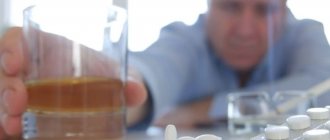
![Selenium [converted]-04-1.jpg](https://laram-halal.ru/wp-content/uploads/selen-preobrazovannyj-04-1-jpg-330x140.jpg)
